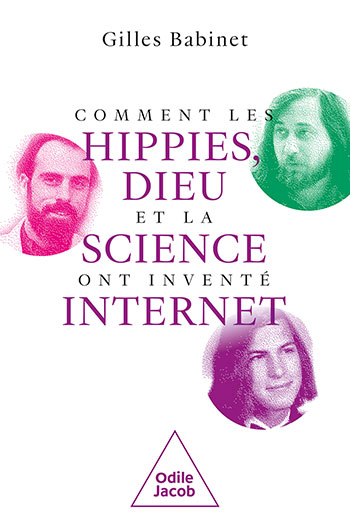From hippies to Gafams, from open source to AI, a history of the Internet


Cover of the book “How hippies, God and science invented the Internet”, Odile Jacob editions
Summer is the time when, holidays and (relative …) disconnection helping, we can leave the screens a little to return to this treasure, books (“When I think of all the books I still have to read, I am sure I will still be happy”: wonderful phrase by Jules Renard). For your summer readings, and after, I recommend “How hippies, God and science invented the Internet”, by Gilles Babinet (Odile Jacob editions).
The saga of the digital creators
Parenthesis before starting: presenting his sixth book some time ago in front of a few happy few, including your servant, the author clarified that his initial title mentioned “science fiction”, which became “science” at the request of his publisher. The SF fan that I am regrets it a little, but we note anyway mentions in the book to this fabulous literature (which has, among other things, very French origins with the “merveilleux-scientifique”). For SF authors, notes the essayist, “we must consider devices that come out of known science and that are not totally implausible either”.
Entrepreneur, “digital champion” from France to the European Union, then (re)president of the CNNUm (National Digital Council) since 2021, Gilles Babinet presents the great creators who have marked the development of the Web, such as Tim Berners-Lee, Satoshi Nakamoto and others. On the cover of this essay, three photos: those of Vint Cerf, Richard Stallman and Steve Jobs. The initiator of the free software movement is thus prominently featured, and in chapter 3 of the book, “The Era of microcomputing”, a section entitled “Open source” draws two portraits: “Richard Stallman, the activist” and “Linus Torvalds, the pragmatist”.
The book of course mentions the famous anecdote of the broken printer which led Stallman to realize that “the era of computer scientists who freely shared their codes in the form of recorded magnetic tapes was fading away” – but this case, “if it is accurate, is only the last straw”. Gilles Babinet specifies in a note: “The term “free software” is deliberately used here rather than open source. Because for Richard Stallman: “Open source is a development methodology; free software is a societal movement.”»
Gilles Babinet also reports Stallman’s refusal to participate in the protests against the Vietnam War or the Putman competition, which could have “revealed his genius in mathematics”. Tested by friends, the computer scientist would have nevertheless obtained record results there. The itinerary of Stallman, recruited at MIT, who sees his colleagues leave one after the other, follows: “The two companies that occupied the playground at that time were Microsoft and Apple, each of which jealously guarded the source code of its operating system. And then it was the solitary attempt to write a free operating system, GNU aka “GNU’s not Unix”: “Stallman didn’t know it yet, but his almost desperate initiative would invade the world and found the spirit as well as the main rules of open source.»
The next subchapter, on Linus Torvalds, recalls the enormous success that GNU/Linux has experienced (which is usually called – including here, let’s face it – for convenience Linux anyway). “Linux has also participated in the rise of the open source movement, of which it has become one of the pillars of a large community with almost political convictions, if not messianic.»
Data, which has become paramount
Where is this movement at? Gilles Babinet observes the change in the stakes: “Today, open source is a mass phenomenon, whose virtues are no longer disputed; but the issue of domination has largely shifted. It is no longer the code that crystallizes the creation of value, but the data. The goal for digital companies is therefore to have the ability to collect as much as possible. In this game, the more efficient their software will be, the more important the collection will be. This is the case for applications driven by artificial intelligence, and that is why a vast amount of recent software innovations are now shared with permissive licenses. Large digital companies have even become important contributors to open source linked to artificial intelligence, which serves their well-understood interest.»
The book focuses on many other points around the Net and what he carries, from his first steps to the future (the story of an evening in Lisbon with people mostly leading “alternative” lifestyles leaves to ponder), without techno-solutionism. A most informative reading.
Read also
The National Digital Council affirms its support for Free Software – October 23, 2022
At the roots of Wikipedia, the culture of free software – March 31, 2021
Free software against surveillance: “necessary but not sufficient” – October 31, 2016
Richard Stallman, an authorized biography and a tour – January 12, 2010








